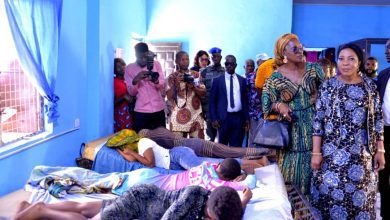BBNaija
Saga punished by Big brother for revealing Biggie’s secret task
Sponsored Links
Big Brother Naija, BBNaija season 6 housemate, Saga has been given a punishment for disobeying Biggie’s orders.
Recall that Biggie gave Saga a secret task to pick a fight with Nini and avoid her till next diary session.
He told Saga that he will be rewarded with 200 token if he successfully carries out the task.
Saga, however, failed the task and told Nini everything Biggie instructed him to do about the secret task.
Biggie addressing housemates on Thursday morning, punished Saga for disobeying his rules.
He told Saga to clean the garden which was littered intentionally and messed up.




